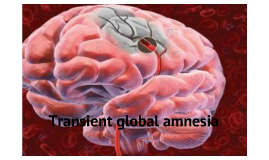
your doctor tells you to stop driving for 3 months or more.This could include having special controls fitted to your car, getting a new licence, or having a licence for a shorter period of time.įor a small number of the conditions, such as epileptic seizures, you'll automatically have to give up your licence for a certain period if you're diagnosed.Īdditionally, according to the DVLA, you must give up your licence if any of the following are true: Once conditions are declared, the DVLA will decide if anything needs to be done. Other conditions listed, such as anxiety or autistic spectrum conditions, may be reportable, but only if they impact on your ability to drive. The government states you may be prosecuted if you’re involved in an accident as a result of an undeclared illness, The Daily Record reports.įind more stories on the driving rules, regulations and restrictions you need to know hereįor some of these conditions, you must tell the DVLA if you're diagnosed with them, regardless of the impact you think it has on your ability to drive.
TRANSIENT GLOBAL AMNESIA DRIVING RESTRICTION DRIVER
The UK's Driver and Vehicle Licencing Agency (DVLA) lists illnesses, conditions and disabilities which might impact on your ability to drive and which you may have to tell them about. doi:10.Drivers living with any of these 112 medical conditions could be at risk of a £1,000 fine if they don't report their condition to licencing authorities. Acute-Onset Amnesia: Transient Global Amnesia and Other Causes.

What Does Transient Global Amnesia Really Mean? Review of the Literature and Thorough Study of 142 Cases. Quinette P, Guillery-Girard B, Dayan J et al. Transient Global Amnesia: Diffusion-Weighted Imaging Lesions and Cerebrovascular Disease. Optimal Diffusion-Weighted Imaging Protocol for Lesion Detection in Transient Global Amnesia. High-Resolution Diffusion-Weighted Imaging Increases Lesion Detectability in Patients with Transient Global Amnesia. Post-traumatic amnesia, has a history of trauma 6 Psychogenic amnesia, more-so affects semantic memory compared to episodic memory, while TGA is the opposite 6ĭrug-related amnesia, typically has features of encephalopathy 6 Transient epileptic amnesia, typically presents upon waking while TGA does not 6 hippocampal ischemic), typically exists with other neurological deficits 6 The condition rarely recurs in ~5% of patients 5,6. These changes generally appear after symptom resolution, and the highest rate of detection is approximately 2 days after symptom onset 6. These lesions can be bilateral and even multifocal 2-4. Prospective and retrospective studies based on a small number of transient global amnesia patients can detect small punctate regions of abnormally restricted diffusion on DWI/ADC sequences in the CA1 area of the hippocampus (lateral edge of the hippocampal gyrus abutting the temporal horn). Radiographic featuresĬT brain and conventional sequences of MRI brain may show no abnormalities, especially while the patient is symptomatic. epileptic phenomena, stroke, focal ischemia) have been proposed with no consensus on the exact mechanism 1,6. Most cases show complete resolution of symptoms within a few hours from onset of symptoms 6.

Episodic memories are more-so affected than semantic memories 6. AssociationsĪnterograde and partial retrograde amnesia lasting less than 24 hours without any other neurological or congestive symptoms 6. Transient global amnesia is most common in the 50-70 year age range ref.


 0 kommentar(er)
0 kommentar(er)
